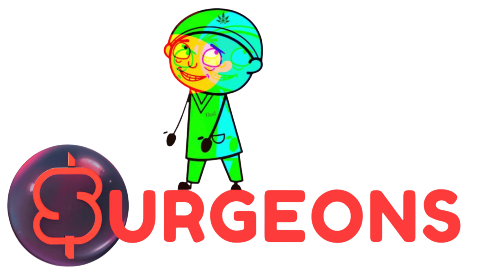Discover our carefully crafted product, designed with quality materials and attention to detail. Perfect for everyday use or special occasions.
Surgeons Online Cannabinoid Academy
Gretchen Whitmer Approves 24% Weed Tax
Michigan’s New 24% Marijuana Wholesale Tax: What It Means for Cannabis — and Hemp/CBD

Table Of Contents:
- Why This 24% Tax — and Why Now?
- What Exactly Is Taxed, and When?
- How This Could Hit Michigan Cannabis Businesses
- Price Impact & Illicit Market Risk
- Legal Challenges & What’s Uncertain
- Why Hemp & CBD Companies Should Care
- What Consumers & Operators Can Do Right Now
- Frequently Asked Questions
- Sources & Further Reading
- Final Thoughts
Why This 24% Tax — and Why Now?
Michigan lawmakers approved a 24% wholesale excise tax on adult-use marijuana transfers as part of a broader state budget deal to fund roads and infrastructure. The policy is projected to raise roughly $420 million annually toward an $1.8 billion road funding plan. Supporters frame it as a necessary revenue source; industry voices call it a dangerous squeeze on an already thin-margin market, warning of closures and job losses. The tone across licensed operators, patients, and consumers is understandably concerned.
What Exactly Is Taxed, and When?
The tax applies at the wholesale stage—when growers/processors transfer adult-use products to retailers (including internal transfers for vertically integrated operators). It’s scheduled to begin January 1, 2026. This is in addition to Michigan’s existing 10% retail excise tax and 6% sales tax collected at checkout. Some legal analyses note administrative details still emerging (e.g., invoice basis, filing cadence), but the direction is clear: upstream costs rise, and a portion will flow into retail shelf prices.

How This Could Hit Michigan Cannabis Businesses
Michigan’s market has been celebrated for volume but challenged by oversupply and falling prices. A new 24% wholesale burden likely pressures cash flow and payment terms. Expect more cash-on-delivery requirements from cultivators/processors, less floating credit to shops, and intensified strain on independent retailers. Larger, vertically integrated groups may weather the shock better, accelerating consolidation. The upshot: some operators will reduce inventory breadth, trim staff, or exit locations.
Price Impact & Illicit Market Risk
As wholesale costs rise, retail tags typically follow. Consumers—especially price-sensitive buyers—may shift toward untaxed illicit sources, undermining safety standards and testing compliance. Other states have learned this the hard way: when legal supply is heavily taxed, the unregulated market fills the gap. Policymakers want revenue; the industry needs sustainability. If legal prices surge too far, total tax collections can actually drop as legal volume shrinks.
Legal Challenges & What’s Uncertain
Michigan’s leading industry association has filed a lawsuit arguing the new wholesale tax conflicts with the voter-initiated adult-use law’s tax framework and constitutional requirements for amending it. Courts could delay or invalidate parts of the law—or let it stand. Until there’s clarity, operators must plan for the tax to take effect in 2026 while monitoring litigation and potential legislative tweaks.
Why Hemp & CBD Companies Should Care
Hemp-derived products (e.g., full-spectrum CBD) are not subject to this 24% wholesale tax. Still, the broader ecosystem matters. If licensed cannabis weakens and illicit THC rises, regulators may respond with tighter rules that spill into hemp-derived cannabinoids—and consumer trust can suffer. Our stance at Surgeons, LLC is pragmatic: keep legal access affordable and trusted, and reinforce product safety, testing, and education across cannabis and hemp.
Exploring hemp wellness while supporting regulated markets? Browse Surgeons’ Full-Spectrum CBD, CBD Gummies, and Topicals. For research-backed reading, see our records hub: CBN & Sleep and Cannabinoid Stability.

What Consumers & Operators Can Do Right Now
- Consumers: Favor licensed shops for tested products; compare value by milligrams per dollar, not just sticker price. Consider non-intoxicating full-spectrum CBD where appropriate.
- Retailers: Scenario-plan with vendors; renegotiate terms; expand value-tier SKUs and education to maintain trust if prices move.
- Cultivators/Processors: Model cash-on-delivery and tax remittance schedules; tighten SKU rationalization; communicate forecast impacts to partners.
- Advocacy: Track court updates; document impacts (closures, jobs, price shifts) to inform policy adjustments if needed.
Frequently Asked Questions
Q: Does the 24% tax apply to medical marijuana or hemp/CBD?
A: No. It applies to adult-use (recreational) wholesale transfers. Medical marijuana and hemp-derived products remain outside this new excise.
Q: When does the tax start?
A: January 1, 2026, unless a court pauses it or lawmakers change it.
Q: How much will total taxes be at retail?
A: Consumers already pay a 10% excise + 6% sales tax at checkout. The new 24% wholesale layer is expected to increase product costs before items hit shelves, likely raising final prices.
Q: Could this boost the illicit market?
A: That’s a major risk. If legal prices climb too far, some buyers turn to untaxed, untested sources—bad for safety and for the state’s long-term revenue.
Q: What’s the status of the lawsuit?
A: Michigan’s leading trade group has filed suit challenging the tax’s constitutionality. Courts will determine whether it proceeds as enacted.
Sources & Further Reading
- AP News – coverage of the newly enacted 24% wholesale tax and projected revenue.
- Crain’s Detroit Business – explanation of how the wholesale tax works and likely COD effects.
- Cannabis Business Times – Senate vote details (19–17), projected revenue, timing.
- MJBizDaily – lawsuit filed by Michigan’s cannabis trade group challenging the tax.
- National/State legal briefs (e.g., Varnum LLP, NatLawReview) – effective date, legislative history, expected administration.

Final Thoughts
Michigan’s new wholesale tax is a pivotal policy shift with real consequences for prices, access, and business survival. Our view is simple: a sustainable legal market protects consumers and advances public health better than any alternative. We’ll continue monitoring court outcomes and guidance, and we’ll keep educating our community with verified, factual updates. In the meantime, if you’re exploring non-intoxicating options, consider full-spectrum CBD products backed by transparency and testing.














